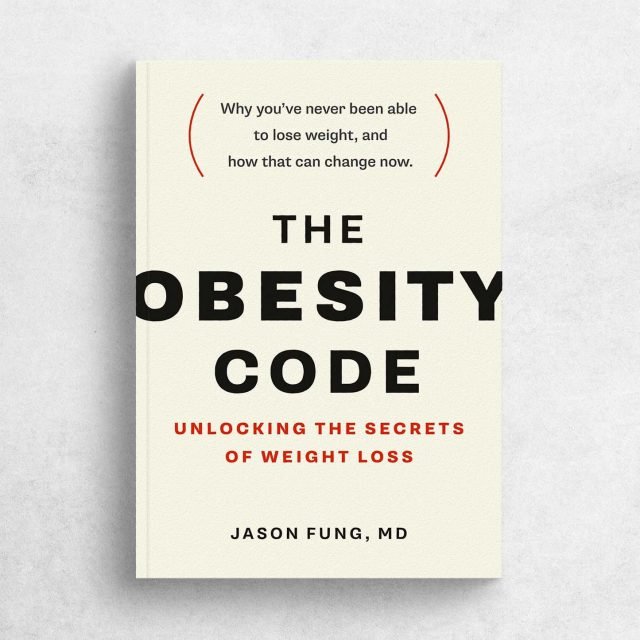There is nothing new, except what has been forgotten – Marie Antoinette
- Fasting is not a fad as it has been promoted for thousands of years
- Virtually every major religion espouses fasting
- Major historical figures including Hippocrates ‘The Father of Modern Medicine’ and Benjamin Franklin were great proponents of fasting
- The idea that fasting is harmful is relatively recent
By Jason Fung, M.D., Co-founder of The Fasting Method
Today’s media is suggesting fasting is just the latest fad diet, but is that really true? A fad is an intense and widely shared enthusiasm that is relatively short lived. There have been many fads that have not stood the test of time – pet rocks, fidget spinners, and the internet Ice Bucket Challenge come to mind. There have also been many fad diets – like the cookie diet, or the cabbage soup diet or the baby food diet. While they may work in the short term, none of these sounds appetizing for long term success. Intermittent fasting is becoming more popular, so does it qualify as the latest diet fad?

Weight loss is not only a question of ‘What to eat”, but also “When to eat”. It’s impossible to ignore the question of frequency. Falling from a building 1000 feet off the ground once is not the same as falling from a 1-foot wall 1000 times. Yet the total distance is still 1000 feet. One will kill you, the other won’t. To lose weight, you can change either:
- What foods we eat
- How often we eat
There’s plenty of discussion of what foods are healthy or unhealthy, but very little about how often we should eat. Logically, if you want to lose weight, then you should eat as infrequently as possible. If a fancy coffee drink costs $5, it’s OK if you have it once a month, but not so OK if you drink it twice a day. Frequency always matters. Any time that you don’t eat is called ‘fasting’, so this strategy is often called intermittent fasting. But wait! Isn’t fasting just the latest fad diet?
No. Fasting is actually the oldest nutritional intervention in the world. It is not some exotic, never-before-tried diet miracle. Instead, fasting is an ancient healing tradition practiced by virtually every culture and religion on earth.

Fasting is not Starvation
Fasting is fundamentally different from starvation in one important way – control. Fasting is the voluntary withholding of food for spiritual, health, or other reasons. Starvation is the involuntary absence of food. It is neither deliberate, nor controlled. Starving people have no idea when and where their next meal will come from. The two terms should never be confused with each other. It is the difference between running for fun and running from a hungry wolf.
Fasting may be done for any period of time, from a few hours to months on end. You may start fasting at any time you wish, and you may stop fasting at any time you wish. You might use a fasting variant by allowing some foods or drinks during a fast, such as tea, coffee or bone broth. Or you might do a traditional strict water fast. Perhaps you might do a fasting variant one day and then a strict fast the next. You might do fasting once a month or you may do it every day. In a sense, fasting is part of everyday life. The term ‘break fast’ is the meal that breaks the fast – which is done daily. It’s all up to you. You are fully in control.
An Ancient Tradition
Fasting is one of the most ancient and widespread healing traditions in the world. Hippocrates of Cos (c 460 – c370 BC), widely considered the father of modern medicine, prescribed and championed the practice of fasting. He wrote, “To eat when you are sick, is to feed your illness”.
The ancient Greek writer and historian Plutarch (cAD46 – c AD 120) also echoed these sentiments. He wrote, “Instead of using medicine, better fast today”. Ancient Greek thinkers Plato and his student Aristotle were also staunch supporters of fasting. The ancient Greeks believed that medical treatment could be observed from nature. Humans, like most animals, do not eat when they become sick. For this reason, fasting has been called the ‘physician within’. This fasting ‘instinct’ that makes dogs, cats and humans anorexic when sick. This sensation is certainly familiar to everybody. Consider the last time you were sick with the flu. Probably the last thing you wanted to do was eat. So, fasting seems to be a universal human instinct to multiple forms of illnesses. Thus, fasting is ingrained into human heritage, and as old as mankind itself.

The ancient Greeks believed that fasting improves cognitive abilities. Think about the last time you ate a huge Thanksgiving meal. Did you feel more energetic and mentally alert afterwards? Or, instead did you feel sleepy and a little dopey? More likely the latter. Blood is shunted to your digestive system to cope with the huge influx of food, leaving less blood going to the brain. Result – food coma.
Other intellectual giants were also great proponents of fasting. Philip Paracelsus, the founder of toxicology and one of three fathers of modern Western medicine (along with Hippocrates and Galen) wrote, “Fasting is the greatest remedy – the physician within”. Benjamin Franklin (1706-1790), one of America’s founding fathers and renowned for wide knowledge in many areas once wrote of fasting “The best of all medicines is resting and fasting”.
Fasting for spiritual purposes is widely practiced, and remains part of virtually every major religion in the world. Jesus Christ, Buddha and the prophet Muhammed all shared a common belief in the healing power of fasting. In spiritual terms, it is often called cleansing or purification, but practically, it amounts to the same thing. The practice of fasting developed independently among different religions and cultures, not as something that was harmful, but something that was deeply, intrinsically beneficial to the human body and spirit. In Buddhism, food is often consumed only in the morning, and followers fast from noon until the next morning daily. In addition to this, there may be various water-only fasts for days or weeks on end. Greek Orthodox Christians may follow various fasts over 180-200 days of the year. Dr. Ancel Keys often considered Crete the poster child of the healthy Mediterranean diet. However, there was a critically important factor that he completely dismissed. Most of the population of Crete followed the Greek Orthodox tradition of fasting.
Muslims fast from sunrise to sunset during the holy month of Ramadan. The prophet Muhammad also encouraged fasting on Mondays and Thursdays of every week. Ramadan is the best study of the fasting periods. It differs from many fasting protocols in that fluids are also forbidden. In addition to fasting, they also undergo a period of mild dehydration. Further, since eating is permitted before sunrise and after sunset, recent studies (27) indicate that daily caloric intake actually rises significantly during this period. Gorging before sunrise and after sunset seems to negate some of the beneficial effects.
So fasting is truly an idea that has withstood the test of time. Arguable, the three most influential people to have ever lived agreed that fasting is beneficial. If this was a harmful practice, do you not think we would have figured this out, oh, say 1000 years ago?
There are certainly people who don’t want you to fast. There’s this happy fellow….

There’s also this lovely mermaid who doesn’t want you to fast…

And don’t forget this lovable Tiger….

So the question comes down to this. Does fasting sound like a fad to you? With regards to your own health, who would you trust?

For more, see The Obesity Code.
Learn more about Pique Fasting Tea.
For fasting education, support and community, go to The Fasting Method.












Responses